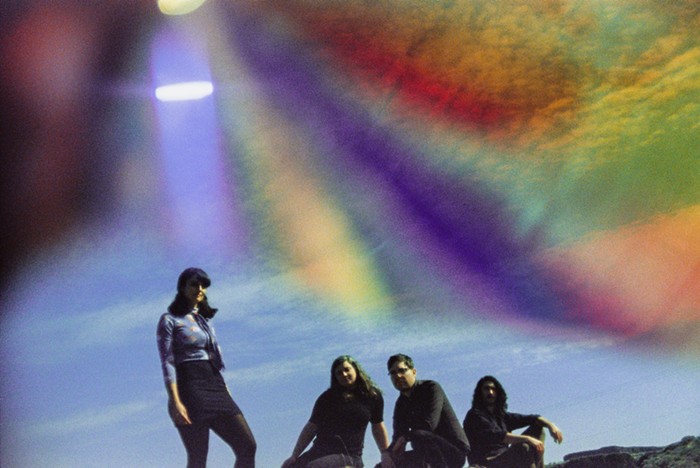Femi Kuti
w/Daara J
Sat July 30, Showbox, 8 pm, $25.
Femi Anikulapo Kuti is the son of Fela Anikulapo Kuti. Fela, a Nigerian who died in 1997 of AIDS, is considered to be the most brilliant African musician of the 20th century—brilliant because his music and personality were big and burned very brightly. Fela was married to 30 or so women, his songs (an intoxicating mix of African and black American rhythms) often ran for 30 minutes, and the lyrics of these songs were almost always political—critical primarily of the West and the Nigerian government. Fela was Africa's first and only rock god. It is not wrong to place him in the same class as Bob Marley and John Lennon.
It is also correct to place Femi Kuti, his son, in the same class as Ziggy Marley and Julian Lennon. But whereas Ziggy and Julian have failed to be anything other than the sons of rock gods, Femi is on the verge of becoming Africa's second rock god. Part of the reason for this is, as a young man, Femi played in his father's orchestra, Egypt 80, and so was groomed to become its leader. Femi is also a serious and accomplished saxophonist (he owes much of his technique and sound to John Coltrane), and his love for music can't be doubted. I'll take one soft step and say Femi is a better musician than his father; and take another bold step and claim Femi loves music more than his father.
But Femi's main accomplishment, and the one that truly distinguishes him from the others in his class, is that, though he extends or continues his father's work, he manages to maintain his own identity. Femi in many ways is not at all like Fela. The father was polygamous; Femi is monogamous. The father made songs that were very long; Femi makes songs that are of a reasonable length. Fela's English was more African; Femi's English is more African American. Fela was part of the pan-Africanist movement; Femi is connected to the current global network—he has worked with hiphoppers like Common and the Roots, and electronica producers like Austria's Sofa Surfers.
Lastly, Femi is not as crazy as his old man. He has a cooler head, and a relationship with the Nigerian government that isn't stressed to the limits—though he is very critical of black African politicians in general. The music of both son and father, however, capture the megalopolis of Lagos, Africa's biggest city, and the city with the greatest concentration of blacks on earth (13 million brothers and sisters). Many writers have described Femi's (and Fela's) approach to Afro-beat as essentially communal. But this is completely wrong. Femi's music is cosmopolitan (in the root sense of that word—the city as a cosmos). The staggering galaxy of Lagos's heat, heavy traffic, collapsing houses, rising towers, formal and informal markets finds its most adequate expression in the big beats, grand brass arrangements, pretty melodies, and intricate percussive rhythms of Femi's inherited music.
"[Femi's] reality," writes Jean-Christophe Servant in the liner notes for the excellent new DVD Femi Kuti: Live at the Shrine "is that of Lagos." That reality, which is the reality of the blackest metropolis in the world, is best described in the book Harvard's Project On the City: "[Lagos] has no streets [but] instead, it has curbs and gates, barriers and hustlers that control the landscapes. Some areas might look like streets; they might even look like superhighways. But even Lagos's superhighway has bus stops on it, mosques under it, markets in it and buildingless factories through out all of it." The massive city is translated into the whirling cosmos of Femi's music: "As the sun dey shine/May our spirit shine so/As the stars dey bright/Make our future be bright so/When darkness come/...the moon dey give us light."
Finally, Femi, again like his father, and the city and culture he shapes and was shaped by, is all about exuberance—the outrageous expenditure of human energy. Like Indians and Russians, Nigerians are a passionate people, which is why the music of their biggest city is so large and runs for so long. True, Femi's current band is not as big as his father's past band, Egypt 80, but the amount of energy his shows generate is not much less than that of Africa's first and only rock god.



















